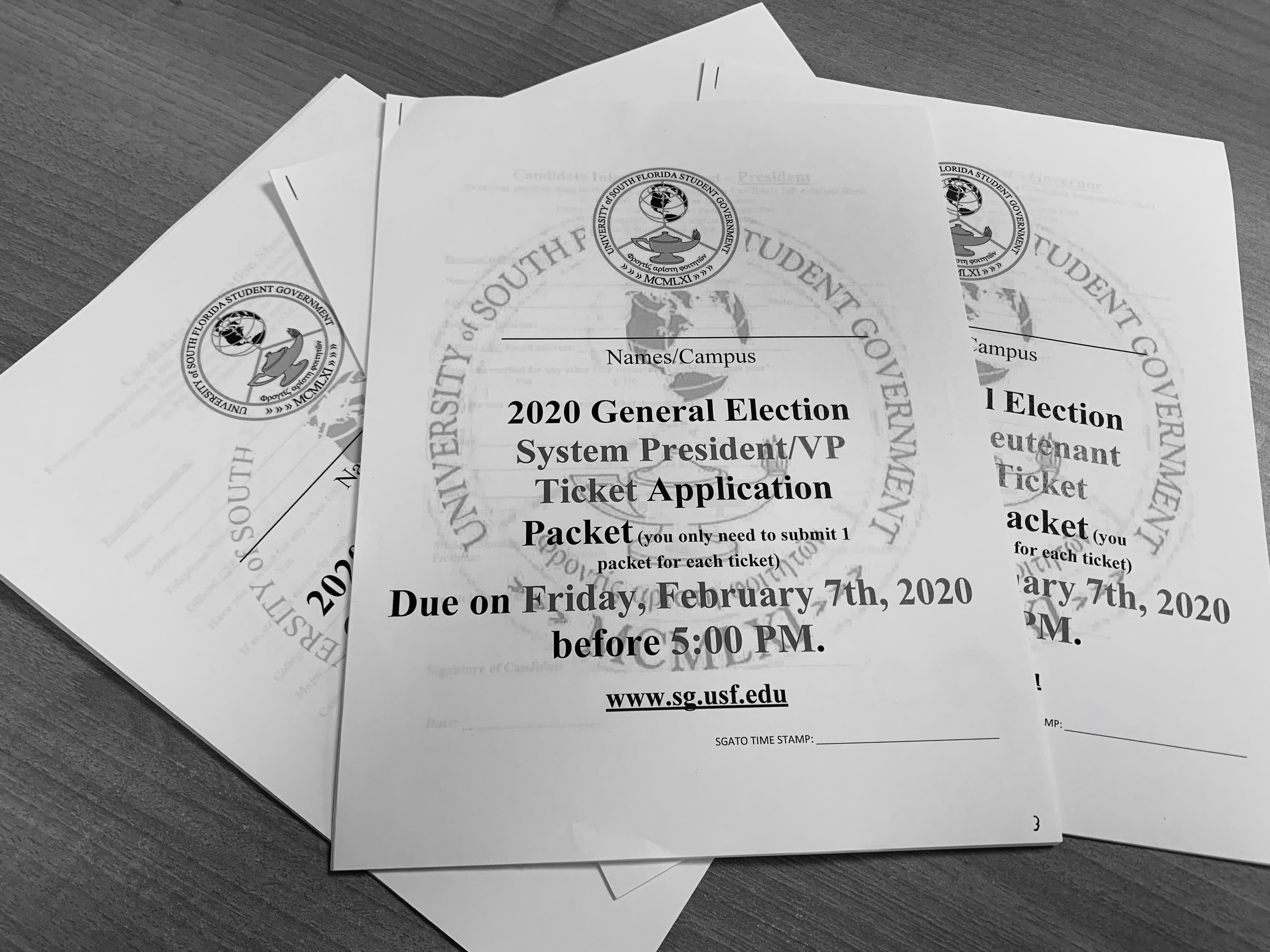First consolidated election commences

ORACLE PHOTO/ LEDA ALVIM
USF students on all three campuses can start thinking about the Student Government (SG) candidates who best represent them because election season is underway.
With the USF system consolidated by the July 1 deadline, SG officially opened its applications to students on the Tampa, St. Pete and Sarasota-Manatee campuses on Jan. 13.
Applications for the elections will close on Feb. 7, and the student body will vote March 2-5 at their respective polling locations across campuses, from 9 a.m. until 5 p.m., and online.
Students from all campuses can apply to be president, vice president, senator, governor, lieutenant and join their campus councils. Candidates will be notified of their eligibility by 5 p.m. on Feb. 16.
In previous years, students voted for who they felt would best represent them in their college. However, because all campuses do not follow the same curriculum, this voting method can no longer apply.
Regardless of major and campus location, students will now vote to elect all 60 senators and 27 council members — nine members per campus.
The president and vice president debate will be held on Feb. 24 at the Marshall Student Center (MSC) Oval Theater at 7 p.m.
The governor, lieutenant and campus council debates will take place Feb. 19 at the MSC Ballroom at 7 p.m. and at Sarasota-Manatee’s student center, Student Commons.
The final results will be announced on March 6 at noon on the Tampa campus in MSC 4200, the Senate Chamber.
SG will be structured much differently after consolidation is completed. It will be split into federal and local levels under a consolidated university. The executive, legislative and judicial branches will still remain but with a few additions.
The federal executive branch will consist of one student body president and vice president representing all three campuses, as well as an attorney general, solicitor general, chief financial officer and chief of staff. The elected president will also be appointed as a member of the Board of Trustees.
On the local level, the executive branch will have three governors representing each campus with the goal of preserving the culture and traditions of each campus while making decisions that best represent the campus’ needs.
In order to provide fairness, each campus will have a guaranteed five seats in the Senate. The remaining 45 seats will be based on population percentage. This means Tampa will end up with approximately 44, St. Pete with nine and Sarasota-Manatee with seven seats.
On the local side of the legislative branch, SG will create three campus councils in charge of confirming the local executive branch positions, funding local organizations and student outreach to the campus. The council chair has to be a senator and from their respective campus.
As of Jan. 14, one application has been received for student body president from the Sarasota-Manatee campus, according to SG Director Gary Manka.
Candidates must be enrolled for at least six credit hours as an undergraduate or four credits as a graduate degree-seeking student in order to meet the eligibility requirements imposed by SG. In addition, candidates must maintain a 2.5 GPA and may not be under disciplinary probation, suspension or expulsion, according to Manka.
To campaign, candidates must obtain a verification from the Elections Rules Commission (ERC) or SG Advising Office in order to start campaigning. “There is a $1000 cap on each entity donation to each candidate’s campaign,” according to the general election application.
Manka said the salary rates for each student position are still undecided.
In regard to voter turnout, Manka said he expects to see more students participating as the general elections will involve all three campuses.
“In the past, voting turnout was based upon who was running and the competitive nature. Like for instance, Tampa elections, you sometimes have four or five tickets competing, so that’s what I call a competitive spirit that fuels voter turnout,” Manka said. “For instance, we could have three campuses against each other in terms of vying for the seat. So that may, hopefully, foster more interest.”
Despite the major changes, Manka said that the election process will be similar to years prior and affirms that challenges are common throughout the process.
“I’m sure we’ll have all kinds of issues,” Manka said. “It’s just the nature of the beast. We’re talking in terms of travel and communication over three distinct geographic regions. So there will be issues and stuff but we’ll always be going to try and work to the win-win for everybody.”







